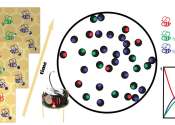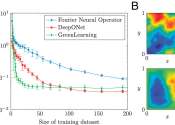A mathematical model uses mathematical language to describe a system. Mathematical models are used not only in the natural sciences and engineering disciplines (such as physics, biology, earth science, meteorology, and engineering) but also in the social sciences (such as economics, psychology, sociology and political science); physicists, engineers, computer scientists, and economists use mathematical models most extensively. The process of developing a mathematical model is termed 'mathematical modelling' (also modeling).
Eykhoff (1974) defined a mathematical model as 'a representation of the essential aspects of an existing system (or a system to be constructed) which presents knowledge of that system in usable form'.
Mathematical models can take many forms, including but not limited to dynamical systems, statistical models, differential equations, or game theoretic models. These and other types of models can overlap, with a given model involving a variety of abstract structures.









